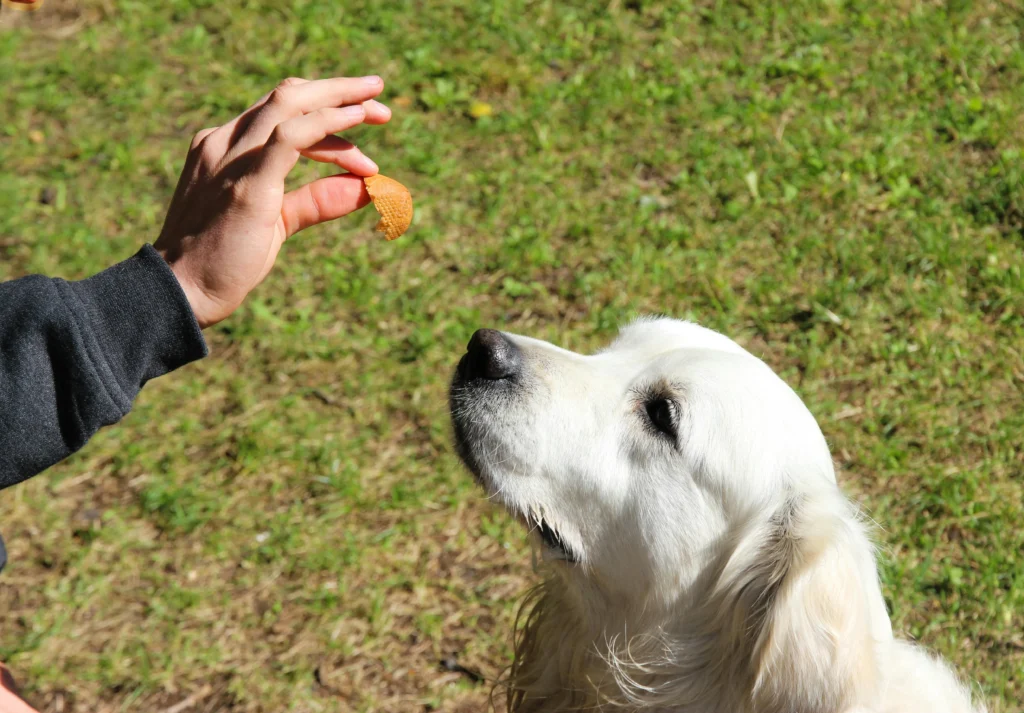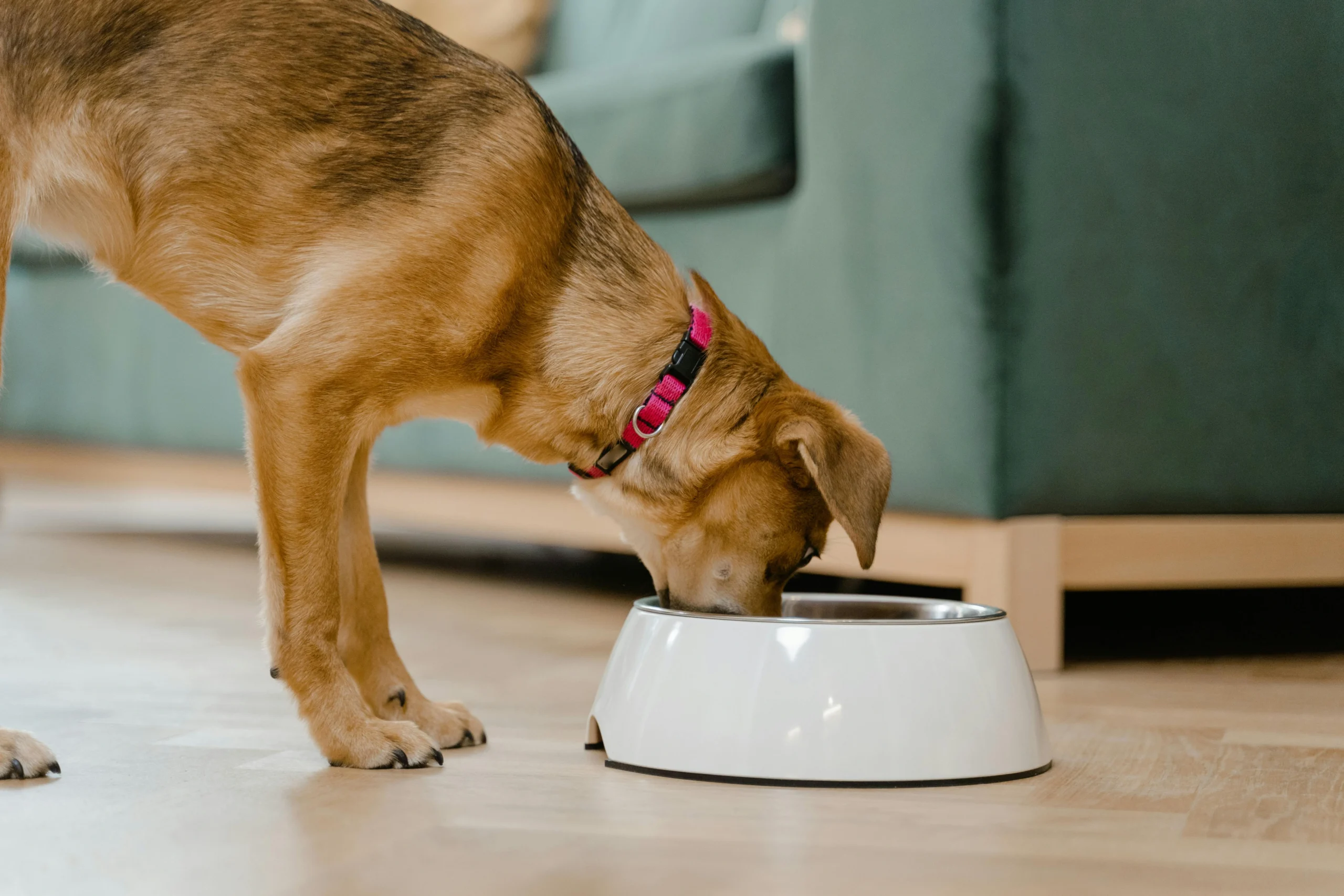Best dog food for sensitive stomachs
Introduction: Finding the Best Dog Food for Sensitive Stomachs
Dogs, like humans, can experience digestive problems that affect their comfort and overall well-being. If your furry friend frequently experiences vomiting, diarrhea, bloating, or gas, they might have a sensitive stomach. While it’s heartbreaking to watch your dog struggle with digestion, the good news is that the solution often begins with something as simple and powerful as the right diet. That’s why choosing the best dog food for sensitive stomachs is crucial for maintaining your pet’s health and happiness.

Dogs with sensitive stomachs require food that is gentle, highly digestible, and free of common irritants like artificial additives, fillers, and certain grains. But with the overwhelming number of options on the market, it can be difficult to know which formula will truly make a difference. Each dog is different, and what benefits one might not be effective for another. Factors such as breed, age, and pre-existing medical conditions all play a role in determining the right choice.
In this article, we’ll explore what causes sensitive stomachs in dogs, what ingredients to look for (and avoid), and provide you with a curated list of the best dog food for sensitive stomachs available today. Whether you have a senior dog experiencing age-related digestive issues or a young pup with food sensitivities, this guide will help you make an informed decision.
By the end of this post, you’ll feel confident in selecting a nourishing, soothing formula that supports your dog’s digestive health so you both can enjoy more happy, tail-wagging moments together.
Table of Contents
What Causes Sensitive Stomachs in Dogs?
Understanding Why Dogs Need the Best Dog Food for Sensitive Stomachs
Digestive issues in dogs can be frustrating and concerning for pet owners. Understanding the root causes of these issues is the first step in choosing the best dog food for sensitive stomachs and restoring your pup’s digestive balance.
Sensitive stomachs in dogs can stem from a variety of factors. Food intolerance or allergies are among the most common causes. Some dogs may have adverse reactions to certain ingredients like beef, dairy, corn, wheat, or artificial preservatives. These ingredients can irritate the gastrointestinal tract and lead to symptoms like vomiting, loose stools, or excessive gas.
An abrupt shift in your dog’s diet may also play a role. Dogs have sensitive digestive systems, and abrupt changes in their food can disrupt gut flora and cause discomfort. It’s always best to transition to a new diet gradually over 7 to 10 days.
Additionally, underlying health conditions such as inflammatory bowel disease (IBD), pancreatitis, or liver problems can contribute to stomach sensitivity. Stress, parasites, and poor-quality dog food made with fillers and synthetic additives can also trigger digestive upset.
Choosing the best dog food for sensitive stomachs involves eliminating these triggers and focusing on easily digestible ingredients. Consider diets with limited ingredients, grain-free alternatives, and formulas rich in prebiotics, probiotics, and premium-quality proteins. These foods help soothe the digestive tract and promote a healthy gut environment.
Knowing the root of your dog’s digestive issues helps you make thoughtful and well-informed choices for their care. In the next section, we’ll explore which ingredients to look for and which ones to avoid when shopping for the best dog food for sensitive stomachs.
Essential Ingredients to Seek in Top Dog Food for Sensitive Stomachs
What Defines the Best Dog Food Formula for Sensitive Stomachs?
When choosing the best dog food for sensitive stomachs, the ingredient list is your most important guide. Dogs with digestive issues need simple, high-quality foods that are easy on the stomach and packed with nutrients. The goal is to soothe the digestive system while ensuring your pup gets all the nourishment they need.
Easily Digestible Proteins
A top priority is finding a high-quality protein from a single source. Chicken, turkey, lamb, or salmon are common choices in premium sensitive-stomach formulas. These proteins are gentle on digestion and less likely to trigger allergies compared to fillers like by-products or meat meals of unknown origin.
Limited Ingredients and Novel Proteins
Limited-ingredient diets (LID) reduce the risk of food sensitivities by minimizing the number of potential allergens. These formulas often feature a single protein source and a small number of carbohydrates. Novel proteins like duck, venison, or fish are excellent options for dogs that may have developed sensitivities to more common proteins.
Prebiotics and Probiotics
Prebiotics and probiotics are essential for maintaining a healthy balance of gut bacteria. They help promote better digestion, reduce inflammation, and support the immune system. Many of the best dog food for sensitive stomachs include these digestive aids to help keep your dog’s system running smoothly.
Gentle Carbohydrates
Rice, oatmeal, sweet potatoes, and pumpkin are excellent carbohydrate sources for dogs with sensitive stomachs. They’re gentle on the digestive system and offer fiber to promote gut health.
Ingredients to Steer Clear of in Dog Food for Sensitive Stomachs
To truly qualify as the best dog food for sensitive stomachs, a formula must also exclude common irritants. Avoid foods containing:
- Artificial colors, flavors, and preservatives
- Corn, wheat, or soy
- Low-quality by-products and rendered meats
- Excessive fat or spicy additives
These ingredients can disrupt digestion and cause flare-ups in dogs with sensitive stomachs.
By focusing on clean, digestible ingredients and avoiding known irritants, you’ll be well on your way to finding the best dog food for sensitive stomachs that keeps your pup happy, healthy, and comfortable.

Top Picks: Best Dog Food for Sensitive Stomachs
Carefully Selected Options to Soothe Your Dog’s Digestive System
Selecting the best dog food for sensitive stomachs can feel overwhelming with so many brands claiming to be ideal. To help ease the decision, we’ve compiled a list of thoughtfully chosen options that focus on gentle nutrition and simple ingredients, all backed by positive results from pet owners with dogs who struggle with digestion.
1. GentlePaws Grain-Free Turkey & Pumpkin Recipe
Crafted with lean turkey and pumpkin, this formula is easy to digest and free from harsh fillers. It’s ideal for dogs with recurring digestive discomfort or mild food sensitivities.
Why it’s great:
- Single-source animal protein (turkey)
- Pumpkin supports gut health
- No corn, wheat, or soy
2. NatureBite Limited Ingredient Lamb Formula
Specifically crafted for sensitive stomachs, this formula uses lamb as its sole protein source. With no artificial preservatives and a short ingredient list, it’s designed to reduce the risk of allergies and digestive flare-ups.
What makes it effective:
- Limited ingredients
- No by-product meals
- Ideal for food-sensitive breeds
3. CalmCanine Brown Rice & Salmon Blend
Packed with omega fatty acids and easy-to-digest grains, this blend supports both digestive health and skin care. It’s among the best dog food for sensitive stomachs for dogs needing a fiber boost and anti-inflammatory support.
Benefits:
- Includes brown rice for slow-releasing energy
- Salmon provides essential nutrients and healthy fats
- Great for dogs with both stomach and skin issues
4. BellyEase Duck & Sweet Potato Recipe
A novel protein source like duck can help dogs that have developed intolerances to common meats. Paired with sweet potato, this recipe offers a calming, fiber-packed meal.
Why it stands out:
- Hypoallergenic protein
- Grain-free and low in fat
- Gentle on aging digestive systems
When you’re trying to find the best dog food for sensitive stomachs, it’s not just about the label, it’s about the ingredients, digestibility, and how your dog responds. Each dog is different, so these options give you a starting point to find the food that brings comfort back to mealtime.
When to See a Vet: Is It More Than Just Food Sensitivity?
Recognizing When It’s Time for Professional Help
Even after switching to the best dog food for sensitive stomachs, some dogs may continue to experience digestive problems. While dietary changes can often solve mild issues, persistent or worsening symptoms may point to deeper health concerns. Knowing when to seek veterinary advice is vital for your dog’s well-being.
Signs That Require Veterinary Attention
Not every stomach issue is a simple case of food sensitivity. If you’ve transitioned your dog to a high-quality diet, even the best dog food for sensitive stomachs, and they still show signs of discomfort, it’s time to take a closer look.
Reach out to your vet if your dog exhibits any of the following symptoms:
- Vomiting that lasts more than 24 hours
- Diarrhea that doesn’t improve within 2–3 days
- Blood in stool or vomit
- Excessive gas or bloating
- Sudden weight loss
- Loss of appetite
- Chronic lethargy or behavior changes
These symptoms may indicate conditions like pancreatitis, inflammatory bowel disease (IBD), food allergies, parasites, or other gastrointestinal disorders that require diagnosis and treatment beyond dietary adjustments.
Why Even the Best Dog Food for Sensitive Stomachs May Not Be Enough
It’s important to understand that while the best dog food for sensitive stomachs supports digestion, it’s not a cure-all for underlying medical issues. Managing a chronic condition in your dog may require medication, special diets, or further testing.
Veterinarians can conduct exams, run lab tests, and use imaging tools to uncover the root cause of persistent stomach problems. Early detection can prevent small issues from becoming serious health threats.
Trust Your Instincts and Act Early
You know your dog best. If something feels “off” or your dog seems uncomfortable after switching foods, don’t wait too long to seek professional advice. Most digestive issues can be treated, particularly when detected early.
In summary, while the best dog food for sensitive stomachs can make a significant difference for many dogs, ongoing symptoms should not be ignored. When in doubt, a vet visit ensures your dog gets the care and relief they need.

Choosing the Right Dog Food for Sensitive Stomachs
Key Ingredients and Labels to Look For
When it comes to finding the best dog food for sensitive stomachs, not all formulas are created equal. Many pet owners make the mistake of assuming that a product labeled “natural” or “healthy” will automatically suit their dog’s needs. However, dogs with digestive issues require a more thoughtful approach. Paying attention to specific ingredients and product features can help ensure you choose a formula that supports your dog’s unique digestive system.
Look for Limited Ingredient Diets (LID)
One of the best choices for dogs with stomach sensitivity is a limited-ingredient diet. These foods contain fewer components, which reduces the chance of food intolerance or allergic reactions. Ideally, the first few ingredients should include a single-source animal protein like turkey, salmon, or duck, and a gentle carbohydrate such as brown rice or sweet potato.
Avoid formulas with a long list of hard-to-pronounce additives, artificial preservatives, or synthetic colors. The simpler the ingredient list, the better for sensitive stomachs.
Avoid Common Triggers
Some ingredients are known to cause digestive upset in dogs, especially those prone to sensitivity. As you look for the ideal dog food for sensitive stomachs, be sure to avoid:
- Corn, wheat, and soy
- Dairy products
- Meat by-products
- Artificial flavors or colorings
Even if your dog has never had allergies before, a sensitive stomach can be irritated by these fillers and additives.
Consider Fiber and Probiotics
A small amount of added fiber from sources like pumpkin, beet pulp, or oats can promote healthy digestion. Probiotics, beneficial bacteria added to the food, can also help balance your dog’s gut flora and improve nutrient absorption. Many of the best dog food for sensitive stomachs include these digestive aids as part of their formula.
Always Read Labels and Do Research
Don’t be swayed by flashy marketing. Read the full ingredients list and nutritional information on the packaging. Brands that are transparent about their sourcing and formulation often provide better quality and safety for sensitive pets.
Choosing the best dog food for sensitive stomachs may take a bit of time and research, but the payoff is a happier, healthier dog with a more comfortable digestive system.
Final Thoughts: Finding the Best Dog Food for Sensitive Stomachs
Choosing the best dog food for sensitive stomachs isn’t just about picking a popular brand or the most expensive bag on the shelf, it’s about understanding your dog’s unique needs and choosing options that support their digestive health and overall wellness.
Every dog is different. Some may develop sensitivities later in life, while others may show signs of food intolerance from an early age. The key to keeping your furry friend happy and comfortable is recognizing the symptoms, understanding the possible triggers, and taking a proactive approach to their nutrition.
The best dog food for sensitive stomachs typically features a short, clean ingredient list, a single source of protein, and easily digestible carbohydrates. It contains no artificial additives, fillers, or typical irritants like corn, wheat, soy, or dairy. Many high-quality options also include natural digestive aids like fiber-rich vegetables and probiotics, which can support healthy gut function.
However, choosing the right food is only part of the solution. Transitioning gradually, observing your dog closely, and being willing to adjust as needed are all important steps. Even after switching to a sensitive-stomach-friendly formula, continued digestive problems could point to underlying issues that require a vet’s attention.
As a pet parent, your goal is to help your dog live a comfortable, healthy life, and what you put in their bowl each day plays a big role in that. By investing the time to find the best dog food for sensitive stomachs, you’re not just improving their digestion, you’re enhancing their energy, coat quality, immune system, and even their mood.
In conclusion, whether you’re just starting to explore dietary changes or looking to improve your current approach, the right food can make a world of difference. Always prioritize quality, keep your dog’s specific sensitivities in mind, and don’t hesitate to consult a veterinarian for guidance. With the right support, your dog can enjoy every meal and every day without discomfort.
FAQs
What qualities make dog food appropriate for sensitive stomachs?
High-quality dog food for sensitive stomachs usually includes mild, easily digestible ingredients. This includes single-source proteins like turkey or salmon, simple carbohydrates such as rice or sweet potato, and limited or no artificial additives. These formulas are designed to reduce digestive irritation and support a balanced gut, especially for dogs prone to upset stomachs, gas, or loose stools.
How do I know if my dog needs food for a sensitive stomach?
Signs that your dog may benefit from switching to the best dog food for sensitive stomachs include frequent vomiting, loose stools, excessive gas, loss of appetite, or visible discomfort after meals. Dogs with food intolerances, mild allergies, or gastrointestinal issues often respond positively to specialized diets. If these symptoms continue, consulting a veterinarian for an accurate diagnosis is recommended.
Can puppies eat dog food made for sensitive stomachs?
Yes, but only when it’s specially designed for puppies. Puppy formulas have different nutrient profiles to support growth and development. Some brands offer the best dog food for sensitive stomachs tailored to puppies, combining gentle ingredients with the right balance of calories, protein, and minerals needed during early life stages.
How soon can you expect to see improvements after changing your dog’s food?
Most dogs show signs of improvement within a week or two after starting the best dog food for sensitive stomachs. You may notice better stool consistency, reduced gas, and improved energy levels. However, some dogs may take longer to adjust, especially if underlying health issues are involved. Keep a close eye on your pet and reach out to your vet if the symptoms continue.
Is grain-free dog food better for sensitive stomachs?
Not always. While some dogs benefit from grain-free options, others digest whole grains like rice or oats without any problems. The best dog food for sensitive stomachs focuses more on ingredient quality than grain inclusion. It’s best to choose a formula based on your dog’s specific sensitivities rather than assuming grain-free is always superior.








Its great as your other blog posts : D, appreciate it for posting.
Very interesting subject, thanks for putting up.
Thank you for sharing superb informations. Your web-site is very cool. I’m impressed by the details that you have on this blog. It reveals how nicely you perceive this subject. Bookmarked this website page, will come back for extra articles. You, my friend, ROCK! I found simply the information I already searched everywhere and simply could not come across. What a perfect site.
I’m still learning from you, as I’m making my way to the top as well. I absolutely love reading all that is written on your website.Keep the information coming. I loved it!
Regards for helping out, excellent information.
I like what you guys are up too. Such clever work and reporting! Keep up the excellent works guys I have incorporated you guys to my blogroll. I think it will improve the value of my site 🙂